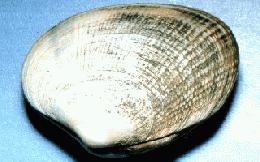On February 15, 2000, members of the Suquamish Tribe dig about 2,000 pounds of Manila clams at Erland Point, on Bremerton, Kitsap County. This is the first Native American commercial clamdig on private non-Indian land since in December 1994, U. S. District Judge Edward Rafeedie upheld Native American rights to fish and take shellfish from "usual and accustomed grounds" as specified in the 1855 Point No Point Treaty.
About 20 tribal members dug for clams with claw hooked forks in moonlight in the tidal flats of the Dyes Inlet in front of the home of Robert and Sharon Tucker. They sold the clams to Chuck Dahman, a dealer from Clam Acres, who sold them to retail outlets in Hawaii. Merle Hayes, a Suquamish Tribe official commented, "This is a real steppingstone for us. We're hoping people now will be less fearful about Indian diggers on non-Indian land."
The tribe and property owners agreed on access routes and times, as specified in the ruling. Sharon Tucker said, "I think it's important for people to understand how much communication went on between the tribe and us as property owners. They never came on our property. They always came by water, as they did tonight. They are very respectful of our privacy."

